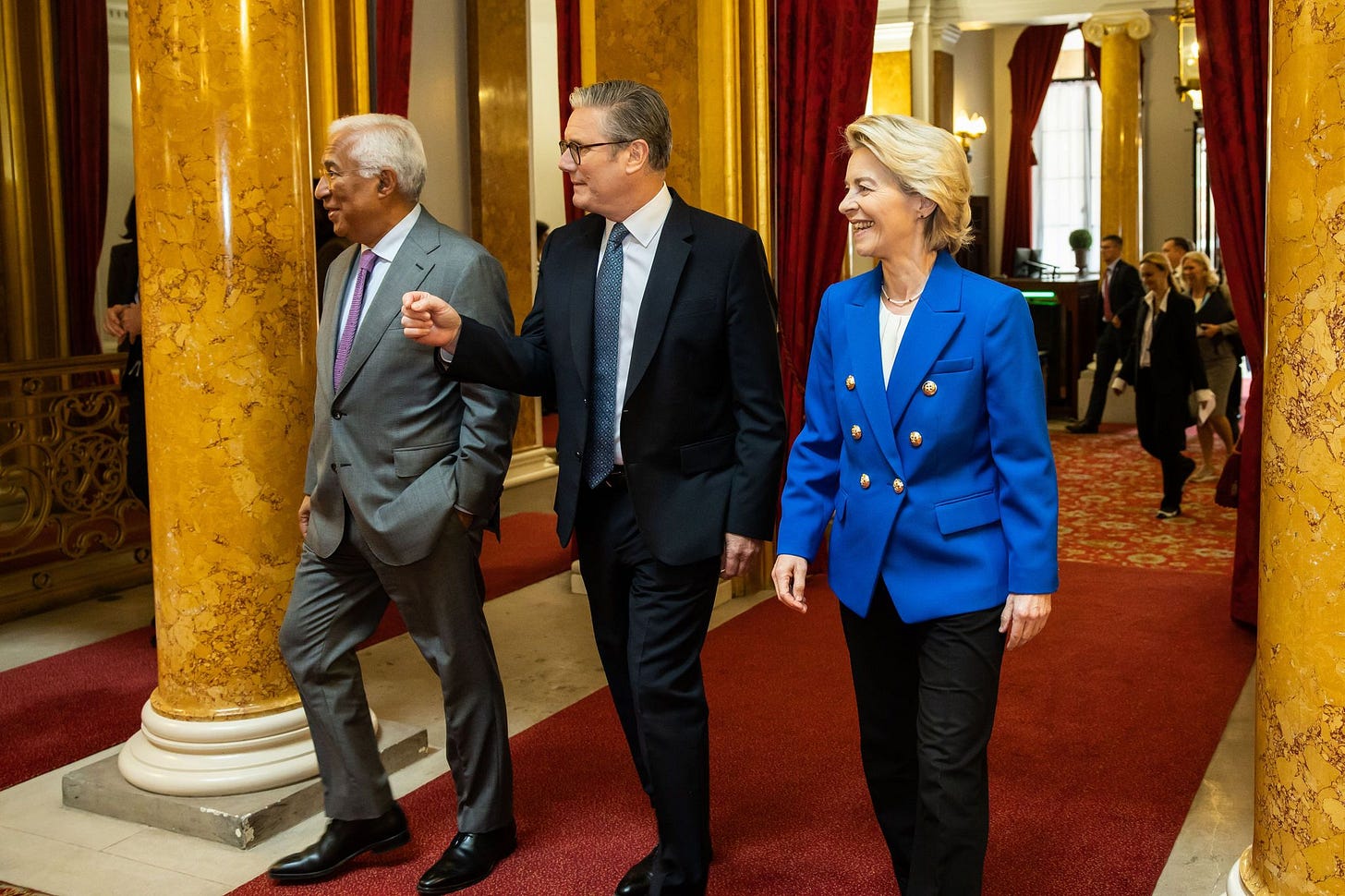🇬🇧From Surrender to Strategy: the Quiet Return of EU Co-Operation
A subtler Brexit shift is underway, with Starmer eying deeper EU ties and dodging headlines while hardliners howl and Britain edges back towards pragmatism.

👋Hey guys, Julien here. The French Dispatch is a reader-supported publication, and both our coverage of current affairs as w…


